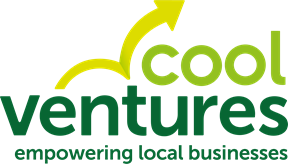By Natasha Bye, part of the Growing Pains series
Most of us started our businesses the same way: with an idea, a bit of grit, and the ability (or sheer stubbornness) to do it all ourselves. Sales? Done. Invoicing? Done. Cleaning the toilets? Sadly, also done.
In those early days, it worked. Every decision went through us, and because there were only three of us in the room, it was fine. But as the team grows… something weird happens. Everything starts to slow down. And more often than not, the culprit isn’t the market, or the staff, or the economy. It’s us.
Yes – we become the bottleneck.
The Signs Are All Too Familiar
· We’re still proofreading invoices line by line, because apparently no one else can be trusted with a calculator.
· We’re CC’d on so many emails that even the office printer has fewer notifications.
· We’re trying to hold one-to-one meetings with 10, 15, 20 people – basically running our own side hustle in speed-dating.
· And let’s be honest: if we took two weeks off, the business would probably need a National Day of Mourning.
Why We Do It
Because that’s how we got here. We’ve spent years being the hero, the fixer, the one with all the answers. We are the Google of our own businesses. It’s a hard habit to break. But what got us here won’t get us there.
So How Do We Break the Habit?

1. Share the Big Picture
Often we keep the “master plan” locked in our heads – strategy, intent, purpose. The stuff that makes decisions make sense. If we share more of it, suddenly other people can make good calls without us hovering.
2. Recruit Like It Matters
If we don’t trust the team, we have to ask ourselves why:
- Do they need more skills? Time to invest in training or better hiring.
- Do they not share our values? That’s a culture issue we need to fix.
- Or are we just addicted to being the smartest person in the room? That’s an us problem.
3. Accept Imperfection
Here’s the truth: not every decision needs to be exactly what we would do. Close enough is often more than good enough. If it moves things forward, let it go.
4. Put in Systems
A few processes can save us from being the human bottleneck. Clear roles, decision rights, ways of working – these let things keep moving without waiting for our signature in blood.
5. Redefine Our Role
Our job isn’t Chief Doer anymore. It’s Chief Enabler. Architect, not bricklayer. The person who makes sure the business can run without us – even if that means stepping back from the day-to-day heroics.
The Upside
When we stop being the bottleneck, the business speeds up. The team grows in confidence. And we get to focus on what only we can do: steering the ship, not rowing every oar.
So the question isn’t just “are we the bottleneck?” It’s “are we willing to let go, even if it means the business grows imperfectly without us?”
How can I change?
If you want to make the first step to move forwards take a look at our Scale-Up programme if you are a South Gloucestershire business and our Growth programme if you are a Bath and North East Somerset business.





